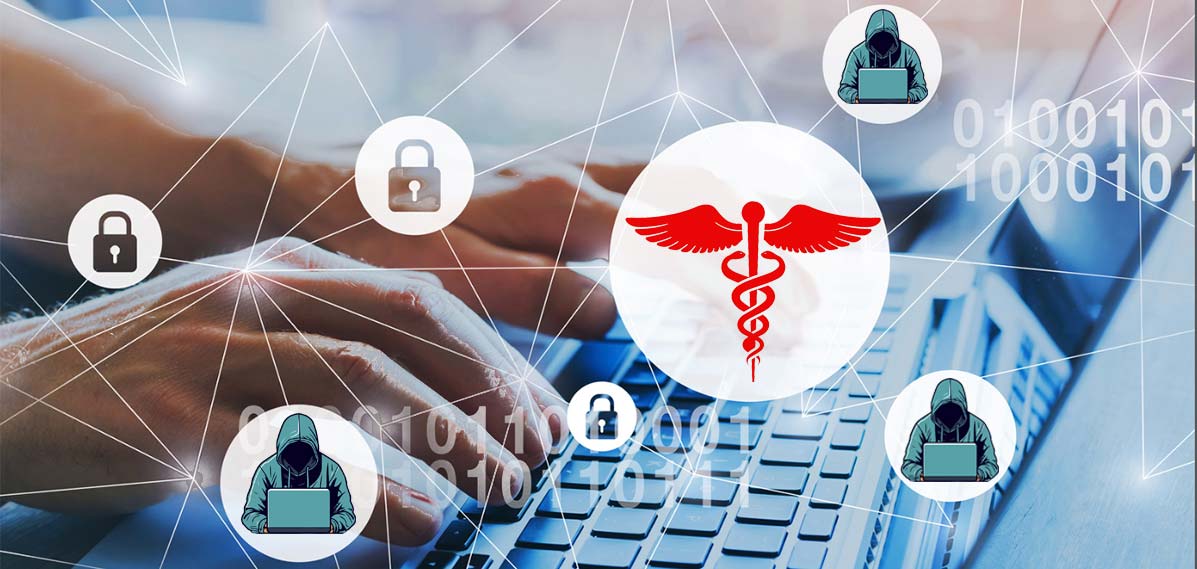Protect Your Health Data from Cyberattacks and Breaches
August 20, 2024

It's a sad fact that healthcare organizations that strive to provide a necessary service to the community are also among the most targeted by criminal cyberattacks. The information at risk is wide-ranging and of high monetary value, as well as being highly confidential. This makes it attractive to cyber thieves, terrorists and enemy foreign states.
Health data can reveal our medical history, diagnosis, treatment, prescriptions, allergies, etc. It can also affect our insurance, employment, and personal relationships. For these reasons alone, protecting our health data from cyberattacks and breaches is essential.
According to a report by HIPAA, the average cost of a data breach in the healthcare sector was $10.93 million in 2023, the highest of any industry.
Cyberattacks create literal pain beyond the financial cost
Aside from the staggering financial costs, there are threats to people's lives. The WannaCry Ransomware Attack in 2017 hit 150 countries, exploiting a weakness in Microsoft software. Both the US and UK governments put the blame squarely on North Korea, which denied any involvement.
Over 300,000 computers were affected across several continents, costing an unknown amount, with some estimates in the billions of US dollars. But it was not just the financial cost that hurt. The attack affected many computers and systems within the UK's National Health Service (NHS).
To protect the computers, many linked and critical systems were turned off. GPs could not manage patient visits, ambulance systems could not provide some emergency services, and blood banks, MRIs, and other critical equipment could not be used.
What can you do?
So, how can we protect our health data from cyberattacks and breaches? With criminal minds permanently focused on breaching any cyber security in place, it is evident that everyone needs to take cyber security seriously. What works today may not work tomorrow. The strong defenses we have in place in 2024 may no longer protect us as thoroughly in 2025.
It is a well-known axiom that the weakest link in any cyber security is the user. So, with that thought in mind, here are some tips and best practices that you can follow:
Use strong passwords and multi-factor authentication
A strong password is long, complex, and unique. It should not contain personal information such as your name, date of birth, or a pet's name. It should also be different from your other passwords so that if one account is compromised, the others are not.
Multi-factor authentication is a security feature that involves you providing additional information to access your account. Such additional information may be a code sent to your phone or email. This extra layer of protection prevents access by hackers as they would need your password and device to log in.
Be careful with phishing emails and links
Phishing is a cyberattack that tries to trick you into revealing your personal or financial information. This may be achieved by tricking you to click on a malicious link or attachment that purports to come from someone or something you trust.
For example, you might receive an email that looks like it's from your doctor, your insurance company, or your health app, asking you to update your account, verify your identity, or view a test result. However, if you click on the link or attachment, you might download malware, ransomware, or spyware. These contain malicious code which can infect your device and steal your data.
To avoid phishing, you should always check the email before opening any attachment. Things that often give away its fake origins are the sender's address, the subject line, the spelling and grammar, and the tone of the email. If something looks suspicious, do not click on it, and delete it immediately. Although you can also contact the sender to verify the email's authenticity, few go to the trouble and choose to err on the side of caution.
Encrypt your data and use a VPN
Encryption is a process that scrambles your data into an unreadable format so that only authorized parties can access it. Encryption can protect your data both in transit and at rest, meaning when it is being sent or received and when it is stored on your device or in the cloud.
You can encrypt your data using encryption software, such as BitLocker or FileVault. Alternatively, you can choose services that offer end-to-end encryption, such as Signal or WhatsApp.
A VPN, or virtual private network, is a service that creates a secure connection between your device and the internet. This hides your IP address and location, encrypting your traffic.
A VPN can help you protect your data when using public Wi-Fi, which cybercriminals can easily hack or monitor.
Review your privacy settings and permissions
Privacy settings and permissions allow you to control how your data is collected, used, and shared by the apps and services you use. For example, you can choose what data you want to share with your health app, such as your location, contacts, or camera.
You can also choose who can see your data, such as your doctor, family, or friends. You should review your privacy settings and permissions regularly and adjust them according to your preferences and needs.
You should also delete or deactivate any accounts or apps you no longer use and request a copy or deletion of your data if possible.
Educate yourself and stay updated
Cybersecurity is a dynamic and evolving field, and cyberattacks and breaches are becoming more sophisticated and frequent. That's why it's important to educate yourself and stay updated on the latest trends, threats, and solutions.
You can read blogs, articles, newsletters, podcasts, or books on cybersecurity or take online courses or webinars. You can also seek guidance and advice from reputable sources, such as the National Cyber Security Centre, the Cybersecurity and Infrastructure Security Agency, or the World Health Organization.
Being informed and aware can better protect your health data and yourself from cyberattacks and breaches.
Stay Alert and seek advice
Protecting your health data from cyberattacks and breaches is a matter of security, privacy, trust, and dignity.
As Garry Lea, the CEO of Global Triangles, a leading health data analytics company, said: "Health data is more than just numbers and codes. It reflects who we are, what we feel, and how we live. We must protect it with the utmost care and respect and empower ourselves and others to do the same."
Since 2015, Global Triangles has been a US-based company offering IT nearshore staff augmentation and outsourcing to clients across North America. Our services include software development, AI integration, e-commerce and other IT skills that will enhance and protect your business.
We offer solutions that enable our clients to achieve their goals at affordable prices. We pride ourselves on generating agreements that work for our clients and teams.
Contact us today if you want to learn how we can help you with your cybersecurity.



